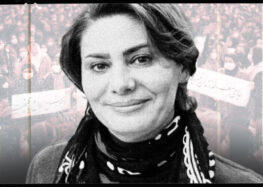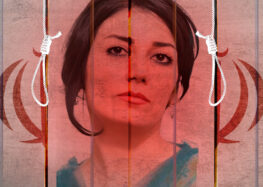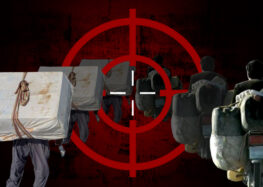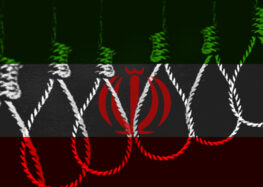UN Uncovers “Crimes Against Humanity” Against Minorities During “Woman, Life, Freedom” Movement
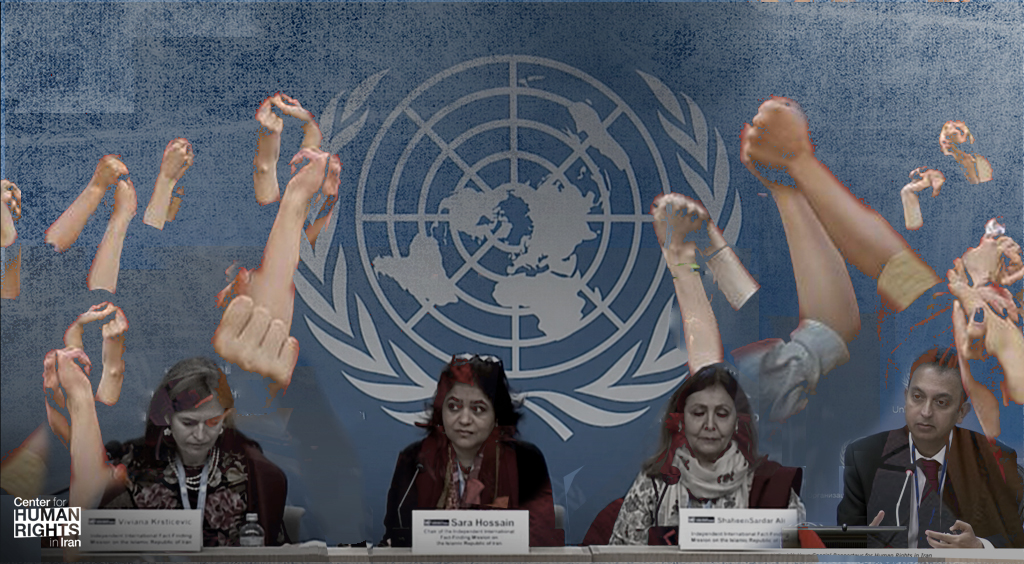 August 7, 2024 – The UN’s Independent International Fact-Finding Mission on Iran has released a report detailing the disproportionate impact of lethal state crackdowns on the country’s ethnic and religious minority communities during the nationwide “Woman, Life, Freedom” protests of 2022/23.
August 7, 2024 – The UN’s Independent International Fact-Finding Mission on Iran has released a report detailing the disproportionate impact of lethal state crackdowns on the country’s ethnic and religious minority communities during the nationwide “Woman, Life, Freedom” protests of 2022/23.
“Violations of minority rights and the rights of members of minorities were amplified in the context of the September 2022 protests, and the Mission found that some of these amounted to crimes against humanity,” the Mission said in its report released on August 5, 2024.
“Security forces subjected minority women, men, and children arrested in connection with the September 2022 protests to rape and other forms of sexual and gender-based violence. Women belonging to ethnic and religious minorities were subjected to particularly brutal acts, including gang rape and rape with an object, in acts also amounting to torture,” the Mission said.
The Mission’s report highlights the lack of viable accountability mechanisms within Iran for victims of gross human rights violations related to the “Woman, Life, Freedom” movement. The Mission also noted potential avenues for accountability outside Iran, including universal jurisdiction and inter-state complaints under the International Convention on the Elimination of All Forms of Racial Discrimination.
The UN Human Rights Council mandated the Independent International Fact-Finding Mission on the Islamic Republic of Iran on 24 November 2022 to investigate alleged human rights violations in the Islamic Republic of Iran related to the protests that began there on 16 September 2022, especially with respect to women and children.
Find the complete UN press release below.
GENEVA – Ethnic and religious minorities in Iran, in particular Kurd and Baluch minorities, have been disproportionally impacted by the Government’s crackdown on protesters since 2022, the direct result of long-standing discrimination that must end immediately, the Independent International Fact-Finding Mission on Iran said in a new advocacy paper released today.
The paper documents a range of gross human rights violations committed by security forces in Iran against members of minorities, including unlawful deaths, extrajudicial executions, unnecessary use of lethal force, arbitrary arrests, torture, rape, enforced disappearances and gender persecution – many of which amount to crimes against humanity. Children belonging to ethnic and religious minorities suffered particularly egregious violations in the context of the protests, including killings and maiming, arrests, enforced disappearances, detention, as well as torture and rape and other forms of sexual violence, resulting in lasting harm.
“The impact of the protests on minorities cannot be overstated. The social fabrics of communities have been frayed. Women belonging to ethnic and religious minorities experience distinct harms that are compounded by pre-existing discrimination and violence against them both as women, as well as by virtue of their status as ethnic and religious minorities,” the paper said. The impact on children is transgenerational – the multifaceted harms of which may be expected for decades to come.”
The protests were triggered by the unlawful death in custody in September 2022 of Jina Mahsa Amini, a 22-year-old Iranian-Kurdish woman, after her arrest by the “morality police” for alleged non-compliance with Iran’s laws on mandatory hijab.
Ethnic and religious minorities were recorded to have had the highest and longest participation in the movement well into 2023, already having faced widespread poverty, decades of discrimination and pervasive impunity for violations committed against them. A pre-existing heavy military and security presence in minority-populated border provinces created a permissive environment for the State to repress the protests, including through launching a concerted militarized response. This led to ethnic and religious minorities experiencing the highest number of deaths and injuries during the entire movement.
Among those affected were ethnic Kurd and Baluch minorities, as well as Azerbaijani Turks and Ahwazi Arab, many of whom are minority Sunnis in the predominantly Shi’a nation.
The Fact-Finding Mission said in its paper that security forces engaged in mass arbitrary arrests and detention of members of ethnic and religious minorities who joined the protests or expressed solidarity with the movement. They subjected those in detention to inhuman conditions, torture, ill-treatment, rape and other forms of sexual and gender-based violence.
Trials that followed were marred by fair trial and due process violations. Detained minorities were often erroneously accused of security-related offences as part of a long-standing State narrative portraying activism by minorities as a threat to national security. There has been a striking surge in executions since the September 2022 protests, most notably in minority-populated regions, with several death sentences rendered most recently against women of ethnic minority backgrounds, adding to the chilling effect on minority rights activism.
Minority rights activists, women human rights defenders, trade unionists and outspoken Sunni religious leaders were particularly targeted.
The Mission found that the crime against humanity of persecution on gender grounds intersected with persecution on ethnic and religious grounds.
Almost half of the Mission’s interviews were conducted with victims and witnesses who were members of minority groups, and a substantial number of incidents investigated took place in minority-populated provinces.
The Mission underscored that accountability, however, remains elusive. It highlighted that – two years after the protests began – the Mission was not aware of any meaningful criminal investigations of high-ranking officials for violations committed against members of minorities in connection with the protests. The Mission called for transformative measures of reparations and accountability at the national and international level in order to secure the rights of victims, in particular, those of women and children belonging to minorities.


